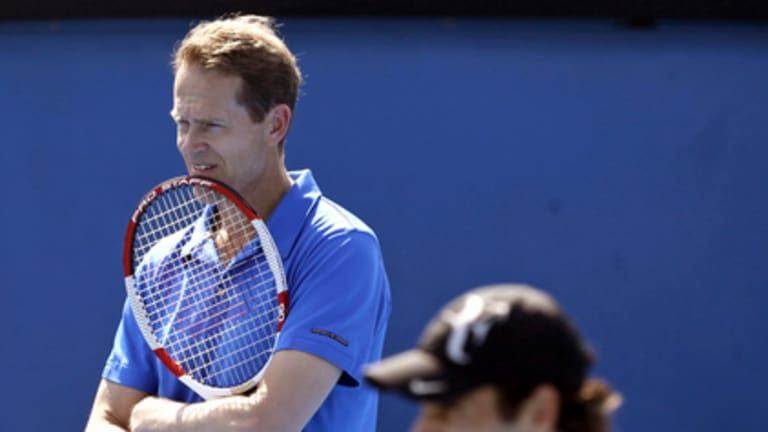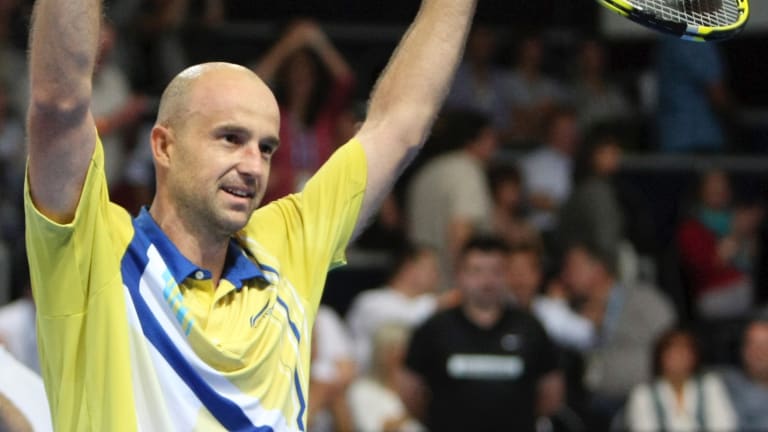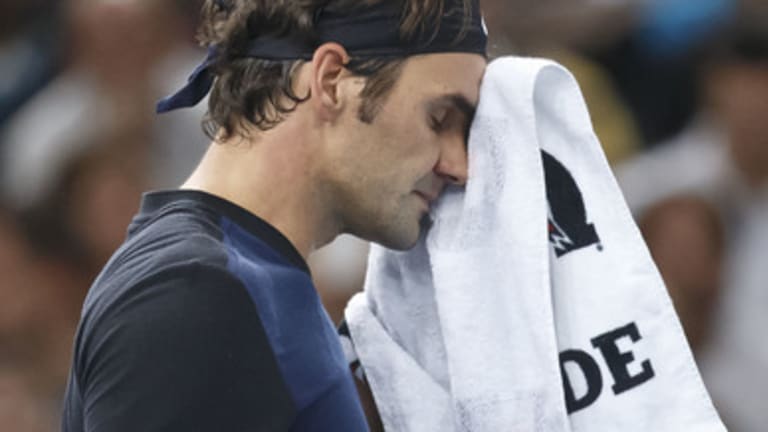Edberg and Federer made a strong and seemingly natural team; their polished styles and demeanors appeared to dovetail perfectly. While they never won the big one—i.e., a major—the Swiss stabilized and sharpened his game with the Swede in his corner. It’s hard to remember now, but when Edberg was added to the team at the end of 2013, a 32-year-old Federer was coming off the most disappointing season of his career. His ranking had dropped from No. 2 to No. 6, and the inevitable signs of late-career decline—injuries, equipment changes, shock losses, early-round exits—seemed to have set in for good.
Now, at 34, Federer is back up to No. 3 and coming off a six-title season. With Edberg’s help, he stopped the rot, went back to his roots at the net, and found a way to win without the otherworldly physical gifts of his youth. Advanced age or not, no one is talking about Federer’s decline at the moment. According to Chris Clarey of the New York Times, Federer wanted the partnership to continue. But Edberg, who had never coached before, doesn’t seem inclined to make a second career of it.
Is Ljubicic the man to continue his work? If Federer fans were looking for another super-coach, Ljubicic isn’t their guy. As a player, he wasn’t in Edberg’s league, though he certainly wasn’t a journeyman, either. In a 14-year career that ended in 2012, Ljubicic won 10 titles, went 429-296 and reached No. 3 in the world. He also beat Federer three times, before losing their last 10 meetings.
Ljubicic isn’t going to inspire Federer the same way that Edberg, his childhood idol, did. He isn’t going to help add an element to his game, the way the the net-rushing Swede did; Ljubicic, despite being 6’4” and having one of the game’s best serves, was content to spend most of his time patrolling the baseline. Ljubicic isn’t going to have much insight into how to win the biggest matches, the way Edberg, a six-time major winner did; Ljubicic reached one Slam semifinal, at the 2006 French Open, and had a combined 11-21 record against Novak Djokovic, Rafael Nadal, Andy Murray and Stan Wawrinka.


